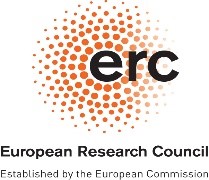References
Abrhám, J.; Britchenko, I.; Jankovic, M.; Garškaitė-Milvydienė, K. 2018. Energy security issues in contemporary Europe, Journal of Security and Sustainability Issues 7(3): 387–398. https://doi.org/10.9770/jssi.2018.7.3(1)
Search via ReFindit
Bilan, Y., Mishchuk, H., Pylypchuk, R. 2017. Towards sustainable economic development via social entrepreneurship, Journal of Security and Sustainability Issues 6(4): 691-702 https://doi.org/10.9770/jssi.2017.6.4(13)
Search via ReFindit
Cherchye, L., Ooghe, E., and Van Puyenbroeck, T. 2008. Robust human development rankings, Journal of Economic Inequality 6(4): 287- 321.
Search via ReFindit
Comim, F. 2016. Beyond the HDI? Assessing alternative measures of human development from a capability perspective. 2016 UNDP Human Development Report Background Paper. https://hdr.undp.org/system/files/documents/comimtemplatepdf.pdf
Search via ReFindit
Costanza, R., Erickson, J., Fligger, K., Adams, A., Adams, C., Altschuler, B., Balter, S., Fisher, B., Hike, J., Kelly, J., Kerr, T., McCauley, M., Montone, K., Rauch, M., Schmiedeskamp, K., Saxton, D., Sparacino, L., Tusinski, W., Williams, L., 2004. Estimates of the Genuine Progress Indicator (GPI) for Vermont, Chittenden County and Burlington, from 1950 to 2000 , Ecological Economics 51 (1–2), 139–155.
Search via ReFindit
Costanza, R., Hart, M., Posner, S., Talberth, J., 2009. Beyond GDP: The Need for New Measures of Progress., THE PARDEE PAPERS / No. 4 / January 2009, The Frederick S. Pardee Center for the Study of the Longer-Range Future at Boston University , accesed on 25th December, 2018 https://www.bu.edu/pardee/files/documents/PP-004-GDP.pdf
Search via ReFindit
Doessel, D.P., and Gounder, R. 1994. Theory and measurement of living levels: Some empirical results for the human development index, Journal of International Development 6(4): 415–435
Search via ReFindit
Dudzevičiūtė, G.; Prakapienė, D. 2018. Investigation of the economic growth, poverty and inequality inter-linkages in the European Union countries, Journal of Security and Sustainability Issues 7(4): 839-854. https://doi.org/10.9770/jssi.2018.7.4(19)
Search via ReFindit
Fukuda-Parr, S. 2003. The Human Development Paradigm: Operationalizing Sen's Ideas On Capabilities, Feminist Economics 9: 301-317
Search via ReFindit
Global Footprint Network http://data.footprintnetwork.org
Search via ReFindit
Global Peace Index (GPI), 2018, Institute for Economics and Peace, http://visionofhumanity.org/app/uploads/2018/06/Global-Peace-Index-2018-2.pdf
Search via ReFindit
Harkness, S. (2004), Social and Political Indicators of Human Well- Being, Research Paper, 2004/33, Helsinki: United Nations University: World Institute for Development Economics Research (WIDER)
Search via ReFindit
Harttgen, K., and Klasen, S. 2010. A Household-Based Human Development Index, Human Development Research Papers, 2010/22, New York: United Nations Development Programme
Search via ReFindit
HDR: Human Development Reports; http://hdr.undp.org/en/content/human-development-index-hdi
Search via ReFindit
Hicks, D.A. 1997. The inequality-adjusted Human Development Index: A Constructive Proposal, World Development 25(8): 1283-1298.
Search via ReFindit
Hirschowitz, R. and Orkin, M. 1997. Inequality in South Africa: Findings from the 1994 October Household Survey, Social Indicators Research 41(1-3): 119-136.
Search via ReFindit
Human Development Indices and Indicators (HDII), 2018 Statistical update; http://hdr.undp.org/sites/default/files/2018_human_development_statistical_update.pdf
Search via ReFindit
Jahan, S. 2002. Measuring living standards and poverty: The human development index as an alternate measure. Working paper of the programme on Global Labor Standards and Living Wages, University of Massachusetts. www.umass.edu/peri/pdfs/glw_jahan.pdf
Search via ReFindit
John F. Helliwell, Richard Layard and Jeffrey D. Sachs, 2018. World Happiness Report (WHR), https://s3.amazonaws.com/happiness-report/2018/WHR_web.pdf
Search via ReFindit
Koroneos, Ch. J.; Rokos, D. 2012. Sustainable and Integrated Development–A Critical Analysis, Sustainability 4: 141–153. https://doi.org/10.3390/su4010141
Search via ReFindit
Krishna Mazumdar. 2003. A New Approach to Human Development Index, Review of Social Economy 61(4): 535-549, https://doi.org/10.1080/0034676032000160895
Search via ReFindit
Kubiszewski, I., Costanza, R., Franco, C., Lawn, P., Talberth, J., Jackson, T., Aylmer, C. 2013. Beyond GDP: Measuring and achieving global genuine progress, Ecological Economics 93 (2013) 57–68, Elsevier
Search via ReFindit
Kuznets, S. 1934. National Income, 1929–1932.
Search via ReFindit
Lawn, Ph. A. 2005. An Assessment of the Evaluation Methods used to calculate the Index of Sustainable Economic Welfare (ISEW), Genuine Progress Indicator (GPI), and Sustainable Net Benefit Index (SNBI), Environment, Development and Sustainability 7: 185–208.
Search via ReFindit
Marcuss, D., Kane, R.E. 2007. US national income and product statistics born of the Great Depression and World War II. Bureau of Economic Analysis: Survey of Current Business 87(2), 32–46.
Search via ReFindit
McCulla, S.H., Smith, S., 2007. Measuring the Economy: A Primer on GDP and the National Income and Product Accounts.
Search via ReFindit
Melas, V.; Lisin, E.; Tvaronavičienė, M., Peresadko, G.; Radwański, R. 2017. Energy security and economic development: renewables and the integration of energy systems, Journal of Security and Sustainability Issues 7(1): 133–139. http://dx.doi.org/10.9770/jssi.2017.7.1(11)
Search via ReFindit
Moran, D., Wackernagel, M., Kitzes, J., Goldfinger, S., Boutaud, A. 2008. Measuring sustainable development — Nation by nation, Ecological Economics 64: 470 – 474
Search via ReFindit
Noorbakhsh, F. 1998. The Human Development Index: Some Technical Issues And Alternative Indices, Journal of International Development, J. Int. Dev. 10, 589±605, John Wiley & Sons, Ltd.
Search via ReFindit
Ogwang, T. 2000. Inter-country inequality in human development indicators, Applied Economics Letters 7(7): 443-446
Search via ReFindit
Osberg, L., and Sharpe, A. 2003). Human Well-being and Economic Well-being: What Values Are Implicit in Current Indices?, Centre for the Study of Living Standards Research Report 2003/04, Ottowa: Centre for the Study of Living Standards.
Search via ReFindit
Panigrahi, R., and Sivramkrishna, S. 2002. An adjusted Human Development Index: Robust country rankings with respect to the choice of fixed maximum and minimum indicator values, Journal of Human Development 3(2): 301-311
Search via ReFindit
Paul, S. 1996. A modified human development index and international comparison, Applied Economics Letters 3(10): 677-682.
Search via ReFindit
Prakash, R. 2011. Is the concept of a green economy a useful way of framing policy discussions and policymaking to promote sustainable development?, Natural Resource Forum 35(1): 63-72, United Nations, https://doi.org/10.1111/j.1477-8947.2011.01347.x
Search via ReFindit
Prakash, R. 2013. Looking beyond the GDP: quantitative evaluation of the “Holistic Progress Index" (HPI)", Journal of Security and Sustainability Issues 2(4): 57–64 http://dx.doi.org/10.9770/jssi.2013.2.4(6)
Search via ReFindit
Rees, W. 1992. Ecological footprints and appropriated carrying capacity: what urban economics leaves out, Environment and Urbanisation 4.
Search via ReFindit
Rees, W. 2017. Ecological Footprints and Appropriated Carrying Capacity: What Urban Economics Leaves Out, Urbanization 2(1): 66-77 https://doi.org/10.1177/2455747117699722
Search via ReFindit
Ślusarczyk, B.; Kot S. 2018. Solution for sustainable development: provisions limiting the consumption of disposable plastic carrier bags in Poland, Journal of Security and Sustainability Issues 7(3): 449–458. https://doi.org/10.9770/jssi.2018.7.3(7)
Search via ReFindit
Smaliukiene, R. 2018. Sustainability issues in the military: genesis and prospects, Journal of Security and Sustainability Issues 8(1): 19-32. https://doi.org/10.9770/jssi.2018.8.1(2)
Search via ReFindit
Smith, P. 1993. Measuring human development, Asian Economic Journal 7(1): 89–106.
Search via ReFindit
Stiglitz, J. 2009. GDP Fetishism. http://www.projectsyndicate.org/commentary/stiglitz116/English
Search via ReFindit
Stiglitz, J.E., Sen, A., Fitoussi, J.P., 2010. Mismeasuring Our Lives: Why GDP Doesn't Add Up. The New Press, New York.
Search via ReFindit
Suleimenova, M. S.; Kulazhanov, T.K.; Akhmetova, S. O.; Daribayev, Z.E.; Moldagazyyeva, Z. Y. 2018. Food security and ecological safety of megalopolis: a case study analysis, Journal of Security and Sustainability Issues 7(3): 495–511. https://doi.org/10.9770/jssi.2018.7.3(10)
Search via ReFindit
Taner, M., Sezen, B., Mıhcı, H., Year. 2011. An Alternative Human Development Index Considering Unemployment, 6(1): 45-60, South East European Journal of Economics and Business, The Journal of University of Sarajevo, https://doi.org/10.2478/v10033-011-0005-z
Search via ReFindit
Wackernagel, M., Monfreda, C., Moran, D., Wermer, P., Goldfinger, S., Deumling, D., Murray, M., 2005. National footprint and biocapacity accounts.The underlying calculation method. Global Footprint Network www.footprintnetwork.org
Search via ReFindit
Wackernagel, M., Rees, W., 1996. Our Ecological Footprint: Reducing Human Impact on the Earth. New Society Publishers.
Search via ReFindit
Wackernagel, M., Schulz, B., Deumling, D., Callejas Linares, A., Jenkins, M., Kapos, V., Monfreda, C., Loh, J., Myers, N., Norgaard, R., Randers, J., 2002. Tracking the ecological overshoot of the human economy. Proceedings of the National Academy of Science 99, 9266–9271.
Search via ReFindit
Wilkinson, R.G., Pickett, K., 2009. The Spirit Level: Why Greater Equality Makes Societies Stronger. Bloomsbury Press, New York.
Search via ReFindit












 RSS 1.0
RSS 1.0